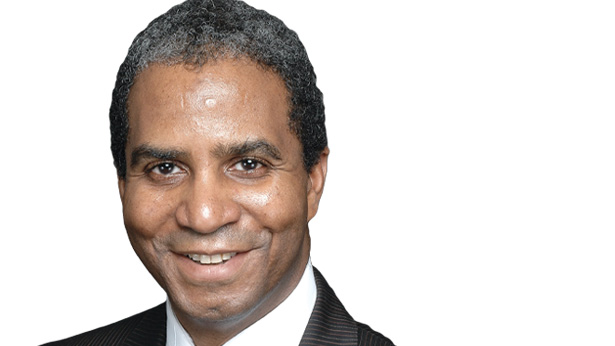Celebrating Black History Month
An Interview with Frank Coleman, Praxis Trustee, a faith-based investing leader

Note: This article reflects the language and context of the time it was originally published. As our organization continues to grow, so does the way we express our mission and values. We’ve chosen to preserve this content for historical reference, while acknowledging that some terminology or framing may differ from our current voice. Our commitment to respect, fairness, and integrity remains constant.
Francis G. Coleman, CEO and Founder at BeingFrank Consulting
Frank Coleman joined Praxis as a Trustee in 2022. Before that he served in various leadership positions at Christian Brothers Investment Services (CBIS), the most recent as Vice Chair, until his retirement in Dec 2019. During his 33+ years in the responsible investment industry, he helped develop and inspire Partners for the Common Good (PCG), served on the boards of the US SIF, the Sustainable Investment Forum, the Interfaith Center for Corporate Responsibility (ICCR) and many other organizations. He has a wealth of experience in investment management and corporate engagement, and has made deep and lasting contributions in both the faith-based investing and sustainable investing fields.
What personal experiences or values have shaped your commitment to socially responsible investing and diversity issues throughout your career?
The seeds of the values that moved me toward sustainable investing were planted when I was a youngster. I grew up in a single-parent household, and my mother was what was then called a community organizer. She brought the first farmers market to Harlem, provided job-seeking services to young adults, services for seniors, and was the community representative on the board of a local hospital. All of her work was in service to communities of color and focused on providing access – to farm fresh food, to jobs and to health care services.
So, growing up I had the experience of being surrounded by examples of social justice, and I imagine that this stayed with me throughout my life.
When I first encountered CBIS (my former firm), it was very easy to translate my background with my mom into a basic understanding of responsible investing.
How have Catholic social values influenced your approach to investment decisions throughout your career?
Absolutely they have. In fact, they have influenced my approach to all aspects of my life.
Outside of the sacramental requirements of being a Catholic, the social teachings of the Church provide a clear and generous roadmap toward personal and spiritual fulfillment. There are ten overarching principles that serve as the markers for this life roadmap.
Simply put, they are: Dignity of the human person, promote the common good, solidarity, preferential option for the poor, stewardship of creation, subsidiarity and the role of government, participation, rights and responsibilities, economic justice, and peace.
Every day, I think about how I have served each one of these principles.
The same is true in investment decisions.
- How are the decisions that I make or that are proposed for others informed by these principles?
- How do we live out these decisions through investing within the portfolio?
- How can we create investment products and services that serve the investment needs of our investors within the context of these principles?
These are the questions I asked with each investment recommendation, decision and investor and corporate interaction.
Why do you believe it is important for investors to prioritize socially responsible investing, particularly in the context of racial equity?
Again, I come back to the principles of Catholic Social Teaching. Racial equity is not a passive activity. According to the principles, as I understand them, working toward racial equity is a requirement. I am required to ensure that all people are treated equitably, and that any historic injustice be addressed and corrected. It is part of the compact of promoting human dignity and providing all with equal access, not just to grace and forgiveness, but also equal access to the benefits that all citizens enjoy.
But more importantly, as I have collaborated with a number of other denominations and faith traditions, it is clear to me that the principles that form the basis of my faith are very similar to those of other faith traditions. In some respect these are universal faith principles that have the potential for broader impact.
How can investors influence companies to adopt more equitable practices beyond just financial performance metrics?
Unfortunately, I don’t think companies these days generally act out of a framework that includes promoting societal good or building sustainable communities. Sustainable investors must be the ones acting as the conscience of corporations reminding them of the “social compact” that is their responsibility. Of course, companies would prefer to focus solely on their “financial performance,” but they have a broader responsibility. Investors must insist on more. The best way to do this is to translate how acceptance of this compact can enhance and improve financial performance.
What advice would you give to emerging investors who want to make a difference in addressing racial disparities through their investments?
The first step is to be clear with your asset manager/investment advisor of your desire to have your investments include a focus on equal access or opportunity practices in the companies you invest in. It would be helpful to have a sense of what this means for you as an investor.
The second step is to make sure that your investment policy statement includes this as a focus.
Third, your advisor/manager should have the experience to help you understand how that might translate into the actual investing process.
Looking ahead, what do you believe are the next steps companies should take to ensure they are making meaningful progress in diversity and equity?
The very first step is to stand firm against incursions into diversity and equity initiatives. The best way to do that is to be thoughtful about how diversity and equity can contribute to their values as a company and how they also contribute to the bottom line. Right now, it seems that diversity and equity has been caught up in the increasing political divisions in our society.
But equal access to all is a fundamental principle in both our civil and corporate lives. And companies that understand this will prosper.
As we celebrate Black History Month, what role do you see for cultural awareness in driving socially responsible investment strategies?
We need to be comfortable with the cultural differences that surround us before we can think of any application. We are not there yet. We must continually honor cultural and racial diversity as core values of our nation, and the respect for those differences must come from our religious traditions.
So, our challenge is to understand that as a nation of immigrants of all types, we must learn how to respect and honor cultural differences, which is the core of what cultural awareness is, and, at the same time, maintain adherence to the core values of the nation.
You have had a long history working with Praxis as a partner in our efforts and now as a member of our Board of Trustees. What thoughts would you have about your experience with Praxis?
One of the things that has been clear to me is that the Catholic principles that I have grown up with are very consistent with the principles of the Anabaptist tradition. Different language explains them, and a different history surrounds them, but there is congruence with the underlying principles. That has made it much easier to understand and to think about the best interests of Praxis investors, which is the primary role of a Trustee.
My experience with Praxis has been very fulfilling, and I am most impressed by how Praxis very deliberately thinks about incorporating its faith principles, values and beliefs in the investment products it provides to investors. I do have to say that the Praxis Impact Bond Fund is a distinctly positioned product that seeks to live through those principles of providing equal capital access to those who might not have such access. It is unusual in the array of investment products and is to be respected for the success it has achieved, both financially and in terms of societal impact.
What wisdom or challenge can you leave us with?
Keep the faith!
It’s a simple statement, and yet, it is encouragement to never lose sight of those faith principles that have always guided the work.
